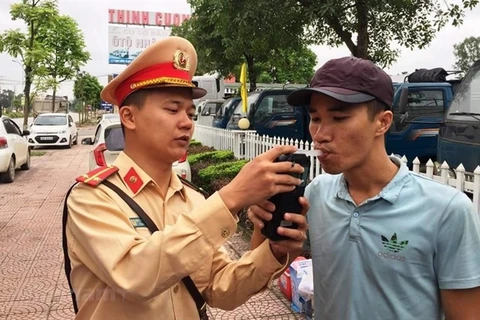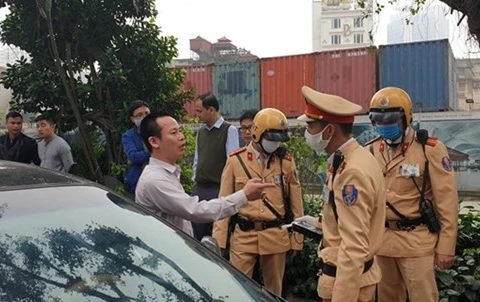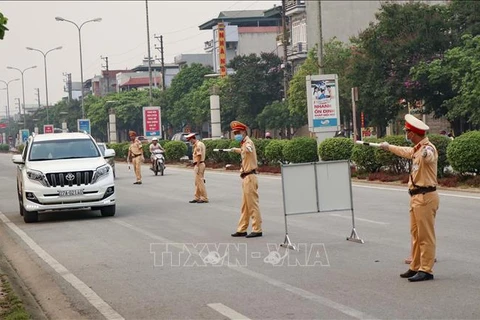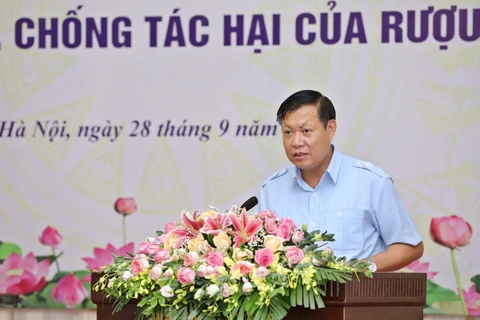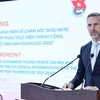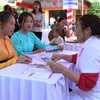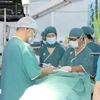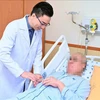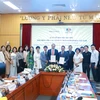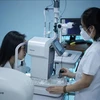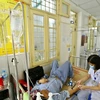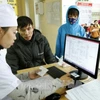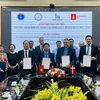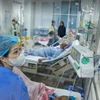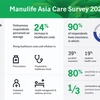Hanoi (VNA) - Alcohol harm prevention content should be included in workplace regulations by banning drinking before and during working hours and driving vehicles, a top health official has said.
Deputy Minister of Health Do Xuan Tuyen made the recommendation at a Ministry of Health meeting on the law on alcohol harm prevention and control on September 28, where he called for fighting the harms of alcohol with the same resolve as has been used to fight COVID-19.
Heads of organisations and agencies should take responsibility if their staff commit alcohol-related violations, and provincial-level People’s Councils should include anti-alcohol harm work in their resolutions.
He also suggested localities set up steering boards for alcohol harm prevention and control, assign tasks to each sector and level of authority, build plans for law implementation and ensure drastic actions that match local conditions.
According to the World Health Organisation (WHO), alcohol is the fifth leading cause of death in the world and also a cause of many chronic diseases. Alcohol abuse also affects family and social relations and undermines the quality of human resources and population.
The deputy minister pointed out that in Vietnam, drinking is one of the three leading causes of traffic accidents among males aged between 15 and 49. The cost of settling alcohol-related traffic accidents accounts for about 1 percent of GDP.
Meanwhile, the cost of treating six cancers (breast cancer, colorectal cancer, liver cancer, mouth cancer, stomach cancer, cervical cancer) with alcohol among the main causes is also a burden on many families and society.
Statistics indicate an upward trend in the average per capita alcohol consumption among people aged 15 and above, both male and female, in Vietnam. The rate of alcohol use among adolescents and the youth is about 80 percent for males and 36 percent for females.
Notably, more than 40 percent of males use alcohol at a hazardous level, which is drinking 60 grams of alcohol or more at least once within 30 days.
The deputy minister said given the considerable hazards of alcohol to public health and social issues, most countries around the world have strictly controlled alcoholic beverages and discouraged consumption.
In Vietnam, the law on alcohol harm prevention and control took effect on January 1 to prevent and minimise the health, social and economic consequences caused by alcohol abuse.
Under current regulations, people from 16 years old to less than 18 years old can be fined 200,000-500,000 VND (8-21 USD) for consuming alcohol.
Those who drink in banned places like hospitals or schools during working hours or those who entice others to drink can be fined 500,000 VND to 1 million VND.
Those who drink alcohol before or during working hours or those who force others to drink would face the fine of 1-3 million VND.
Heads of organisations/agencies can be fined 3-5 million VND if they don’t implement alcohol harm prevention efforts./.
VNA

